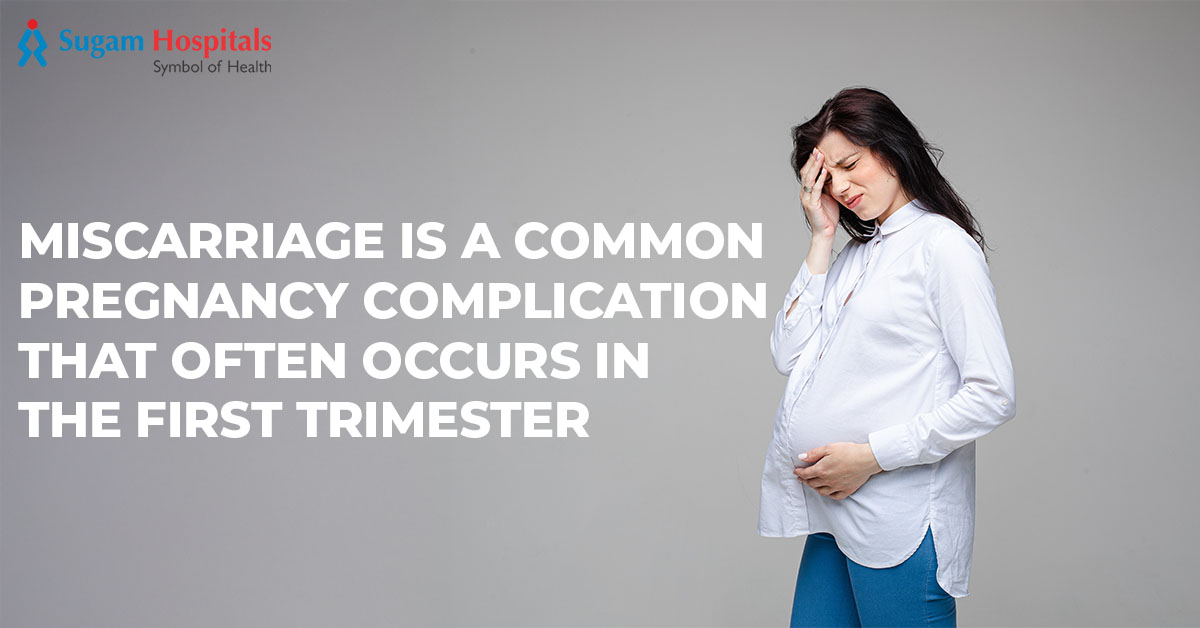Miscarriage Is a Common Pregnancy Complication That Often Occurs in the First Trimester

Miscarriage Is a Common Pregnancy Complication That Often Occurs in the First Trimester
November 20, 2025 by adminThe whole period of pregnancy is a new beginning. The mother has been waiting for joy and hopes for the future. However, for a vast majority of women, this path may turn into a series of unexpected obstacles. A miscarriage is one of the most frequent causes of pregnancy failure during the first three months of the pregnancy and it is foremost responsible for the number of pregnancy losses.
To be able to deal with the emotional turmoil of miscarriage, knowing its causes and signs will provide you with a sense of security, support and even comfort. The motive of this blog is not only to shed light on the subject but also to highlight the importance of showing empathy and following the doctor’s advice.
Understanding Miscarriage and Why It’s Common in Early Pregnancy
A miscarriage or early pregnancy loss refers to a spontaneous termination of pregnancy before the 20th week. The majority of miscarriages, approximately 80%, are in the first trimester within the first 12 weeks.
It is in these early weeks that the embryo goes through major development. Most early losses result from the pregnancy that is not progressing as anticipated, quite often due to some unknown factors. Very often it is the case that a pregnant woman is hard on herself thinking that she must have done something wrong. However, it is quite the opposite, a miscarriage is rarely the consequence of something that the pregnant person did or didn’t do.
The Primary Causes of Miscarriage: Beyond Your Control
Miscarriages can be frequent due to situations that no one can control. One can take comfort in knowing some of the reasons.
- Chromosomal Abnormalities (Most Common):
This is the main reason, which makes up 50-70% of miscarriages of the 1st trimester. Aberrations in the genetic materials of the egg or sperm at fertilization can lead to the halted growth of the zygote. These are typically one-time “accidents” and are rarely passed on.
- Uterine or Cervical Problems:
Examples of these sorts of problems are uterine fibroids, abnormal uterine shapes and an incompetent cervix. Such conditions can cause the loss of pregnancy, particularly a miscarriage in the late first trimester or second trimester.
- Chronic Health Conditions:
Diseases like diabetes (if not well controlled), severe thyroid disorders and the presence of certain autoimmune antibodies may be the source of the situation in which an early miscarriage is happening, however, these are rare cases.
- Lifestyle Factors:
Although smoking heavily, drinking excessively and using drugs can add to the occurrence of miscarriage, they are still at a much lower level of causes from chromosomal abnormalities.
- What’s NOT a Cause:
Stress, exercise or minor falls usually do not result in miscarriage.
Recognizing the Signs: What to Look For and When to Seek Help
Knowing the symptoms of a miscarriage can lead to necessary medical care being given on time.
General Symptoms:
Vaginal Bleeding: The bleeding may also be accompanied with clotting besides light spotting.
Abdominal Pain/Cramping: The range of pains can be from mild period-like cramps to severe ones.
Tissue Passage: The vagina may release some fluid or tissue.
Loss of Pregnancy Symptoms: It may happen that the feeling of sickness and breast tenderness disappear suddenly but this is not a sign of miscarriage if it is the only case.
Point of Emergency: It is never safe to wait in any case of bleeding and abdominal pain during pregnancy. The Sugam Hospital’s emergency team is always ready to provide you with fast care. To confirm a miscarriage, doctors may do pelvic exams, ultrasounds and hCG blood tests.
Healing and Moving Forward: Medical and Emotional Support
Mistress a miscarriage is a very hard time both physically and emotionally. Loving and understanding assistance can be a great help.
Relieving the Miscarriage Physically and Medically:
Different ways of treatment include: managing the situation as it is (letting it go naturally), using drugs and surgery such as D&C depending on the patient’s condition.
Psychological Impact:
It is a common practice to go through grief, rage, sadness and bewilderment. These emotions are right and the process of feeling them is the road to recovery.
Support Systems:
- Try to openly express emotions to your partner, family or friends you trust.
- Professional counseling, or a support group, can be of great help to you and give you comfort.
Sugam Hospital not only takes care of the health of the woman but also through the entire process and offers counseling and the assistance of a fertility specialist for conception in the future. As the best gynecologist in Chrompet we provide continuous medical and emotional support to patients. The majority of women have successful pregnancies following a miscarriage.

